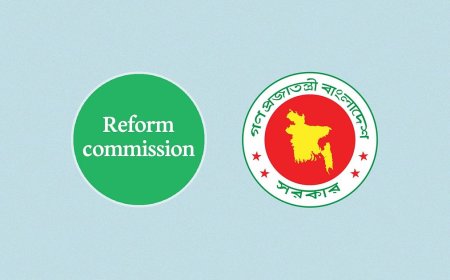The challenges and consequences associated with economic governance
A key requirement for achieving both inclusive growth and poverty reduction is fair access to essential social services.

In Bangladesh today, economic governance is considered a vital factor for creating a society free from inequalities and exploitation, and for ensuring a system based on transparency and accountability. Economic governance, as a concept, can cover a broad range of areas. On one hand, it may encompass all aspects of sound economic management, including macroeconomic, fiscal, and monetary policies, along with the institutions responsible for implementing these policies. On the other hand, it can be limited to managing economic institutions. The various interpretations of economic governance generally fall somewhere between these two extremes.
A key point to understand is that economic governance is a means to an end, not an end in itself.
If we accept this view, it becomes essential to define the purpose of economic governance—specifically, in the context of inclusive growth and poverty reduction.
A critical element in ensuring inclusive growth and poverty reduction is equity, which involves fair participation as active agents in the process and equitable access to the benefits generated.
A fundamental prerequisite for both inclusive growth and poverty reduction is ensuring fair access to basic social services (such as healthcare, education, and clean water) and productive resources (like land, credit, and essential inputs).
When people have equitable access to these resources, they can build their capabilities, engage in the growth and poverty reduction process, seize available opportunities, and benefit from them.
Therefore, in the context of inclusive growth and poverty reduction, economic governance should focus on ensuring equitable access to both basic social services and productive resources.
Markets play a significant role in the provision of these services and resources, both through public and private means. However, people enter the market with varying levels of resources, which influences their access to these services and resources. This creates an uneven playing field.
Economic governance, in the context of the market, can help by providing a regulatory framework to level this playing field. Only through such frameworks can equitable access to essential services and resources be assured.
The importance of a regulatory framework becomes even more apparent when services are provided privately. While private provision can be efficient, it is not always equitable. The state can play a critical role in establishing regulations that ensure equity alongside efficiency.
Regulatory frameworks also become crucial during times of vulnerability, such as financial crises, natural disasters, or political instability. These frameworks can protect the access of vulnerable groups to social services and resources and, with proper linkages, extend this protection to those outside the market as well.
The provision of basic services and resources depends on the availability of resources, and ensuring an equitable allocation of these resources is a central issue in economic governance. In this context, economic governance can address the following seven areas:
-
Revenue Generation: This includes identifying the revenue base, ensuring efficient administration, and maintaining equity in the distribution of the tax burden. Economic governance should cover all these aspects.
-
Resource Allocation and Expenditure: Economic governance must address the allocation and reallocation of resources to human priority areas, particularly basic social services and productive resources. Proper expenditure management can not only increase the availability of these services but can also improve equitable access, particularly when combined with measures like appropriate location and low costs for poor people.
-
External Official Development Assistance (ODA): ODA is an important part of the resource envelope. Economic governance should involve negotiating with external partners, prioritizing the use of ODA in alignment with national strategies, and managing ODA effectively.
-
External Debt Management: Economic governance should also cover issues related to managing external debt, ensuring debt sustainability, and using debt relief for human priority concerns.
-
Decentralization: The decentralization of public resource management is a key aspect of economic governance. It is essential to define the respective roles and responsibilities of national and sub-national governments in generating, allocating, and spending resources for the provision of basic services and resources.
-
Efficiency in Resource Use: Economic governance should focus on improving efficiency in the use of resources. This efficiency is critical not only for the overall provision of services but also for ensuring equitable access to them.
-
Monetary Policy and Central Bank Independence: Economic governance should also address monetary policy, which is managed by an independent central bank. The coordination of monetary and fiscal policies has significant implications for the generation and allocation of resources needed for equitable access to services and resources.
Economic governance can also extend to regional or sub-regional public goods, such as transnational highways, labor and environmental standards, water-sharing agreements, and conflict resolution frameworks. These regional public goods can enhance the negotiating power of poorer countries, ultimately leading to better benefits from globalization and improved access to essential services and resources.
For example, in the case of transnational highways, economic governance could involve international collaborations; in labor and environmental standards, it could focus on sub-regional legal aid for trade negotiations; and in migration, it could foster regional frameworks to address these issues. Such initiatives help countries, particularly in poorer regions, gain better terms in negotiations, contributing to the overall improvement of access to basic services and productive resources.
What's Your Reaction?




















































































